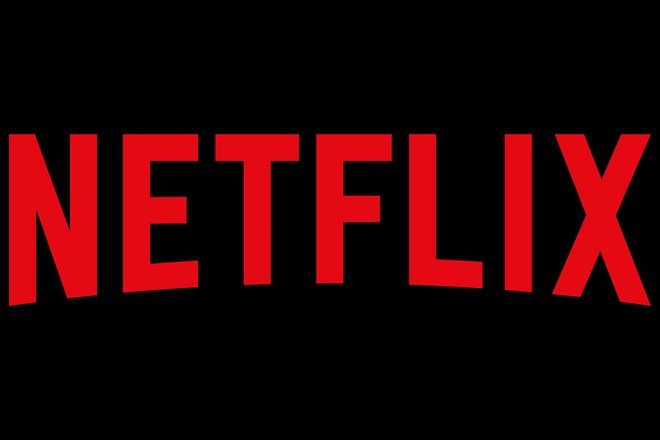
As Netflix transitions from being a streaming company that shows you your favorite reruns to a full fledged studio, it has increasingly waded into political waters, taking stands on various social issues.
Cast your mind back to 2017 when North Carolina repealed the most controversial portions of House Bill 2 (HB2), known colloquially as “the bathroom bill” and officially as the Public Facilities Privacy and Security Act. The law, in short, made it illegal for cities to expand upon laws regulating workplace discrimination and though it named several classes of people who were protected from discrimination, sexual orientation was not one of them.
Because the bill was not repealed completely and still contained portions harmful to the LGBTQ community, Netflix instead, took their business to South Carolina where they’re expected to spend $60 million in the state on an upcoming 10 episode series that began shooting this spring.
The streaming giant finds themselves in a similar situation today where they’re taking aim at another political issue. Georgia Gov. Brian Kemp recently signed a restrictive anti-abortion law which disallows any termination of a pregnancy once a heartbeat can be detected, essentially, 6 weeks into a pregnancy. The law won’t come into effect until January 1, 2020.
RELATED – Acclaimed Filmmaker Alejandro González Iñárritu Defends Netflix And The Cinema Experience
The fact that the HB 481 won’t become law for essentially another six months hasn’t stopped Netflix from stepping into fray. Ted Sarandos, Netflix’s chief content officer, made a statement on the issue and showed that the content provider would take a hardline on the issue, should the bill become law.
“We have many women working on productions in Georgia, whose rights, along with millions of others, will be severely restricted by this law. It’s why we will work with the ACLU and others to fight it in court. Given the legislation has not yet been implemented, we’ll continue to film there, while also supporting partners and artists who choose not to. Should it ever come into effect, we’d rethink our entire investment in Georgia.”
Thus far, no other major studio has made mention of the recent developments in Georgia. While the Motion Picture Association of America (MPAA), tasked with being the voice of studios in Washington, D.C., has been relatively tepid, their position was made known through a statement by spokesperson Chris Ortman shortly after Gov. Kemp signed HB 481.
“Film and television production in Georgia supports more than 92,000 jobs and brings significant economic benefits to communities and families. It is important to remember that similar legislation has been attempted in other states, and has either been enjoined by the courts or currently being challenged. The outcome in Georgia will also be determined through the legal process. We will continue to monitor developments.”
Though not as strong a statement as Netflix’s, the MPAA made their position clear, while noting that similar attempts to restrict abortion rights have failed in the past. Their last admonition concerning the legal process may fall on deaf ears considering the recent changes to the makeup of the Supreme Court of the United States, which will likely hear a case on this issue before too long revising, what was thought to be settled law, Roe v. Wade.
So, how much money are we talking about? All told, in 2007, Hollywood spent approximately $93 million on film and television productions in Georgia. By 2017, it was upwards of $2.7 billion, with the aid of productions like The Walking Dead and Spider-Man: Homecoming. It was estimated that the $2.7 billion spent had an economic impact of $9.5 billion in FY17.
It is an uneasy alliance that studios have with places like North Carolina and Georgia. The states are decidedly socially conservative, but pass attractive tax incentives designed to get Hollywood to invest in them. In point of fact, Georgia is weighing expanding the tax incentive law that was such a boon for their economy to begin with. For their part, while Hollywood is socially liberal, it is generally always looking to save a buck in production costs.
The question now is: who will hold to their values more. Are states willing to forego the positive impact Hollywood has brought to their economies and are studios willing to pull up stakes and film elsewhere, losing millions in tax incentives in the process over for social issues. Netflix has answered the question before the bill even becomes law.
What do you think? Should studios be involved in politics? Is there a compromise that can be reached? Let us know your thoughts down below or on twitter @lrm_exclusive and @sirjonesiest.
Don’t forget to share this post on your Facebook and Twitter using the buttons at the top! Or you can react to the post down below!
—–
Have you checked out LRM Online‘s official podcast feed yet, which includes our new show LRMornings? Check it out by listening below. It’s also available on all your favorite podcast apps!
Source: Variety
 FOR FANBOYS, BY FANBOYS
Have you checked out LRM Online’s official podcasts and videos on The Genreverse Podcast Network? Available on YouTube and all your favorite podcast apps, This multimedia empire includes The Daily CoG, Breaking Geek Radio: The Podcast, GeekScholars Movie News, Anime-Versal Review Podcast, and our Star Wars dedicated podcast The Cantina. Check it out by listening on all your favorite podcast apps, or watching on YouTube!
Subscribe on: Apple Podcasts | Spotify | SoundCloud | Stitcher | Google Play
FOR FANBOYS, BY FANBOYS
Have you checked out LRM Online’s official podcasts and videos on The Genreverse Podcast Network? Available on YouTube and all your favorite podcast apps, This multimedia empire includes The Daily CoG, Breaking Geek Radio: The Podcast, GeekScholars Movie News, Anime-Versal Review Podcast, and our Star Wars dedicated podcast The Cantina. Check it out by listening on all your favorite podcast apps, or watching on YouTube!
Subscribe on: Apple Podcasts | Spotify | SoundCloud | Stitcher | Google Play




